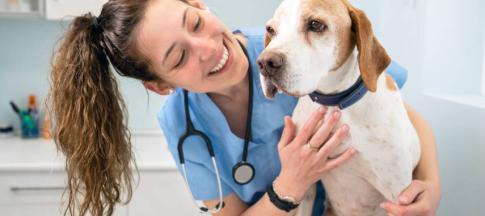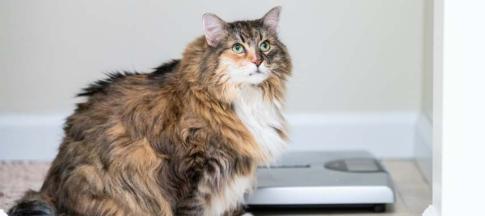
Many common conditions affecting cats and dogs can be dangerous unless you take the correct precautions.
Thankfully, advances in animal medicine mean that getting your pet vaccinated for most common diseases is easy and inexpensive.
Our guide discusses why it’s important to get your pet vaccinated, how vaccinations work and whether insurance covers them.
Does pet insurance cover vaccinations?
No. Pet insurance doesn’t cover vaccinations.
If you have pet insurance, your insurer requires your pet to have up-to-date vaccinations to keep your policy valid.
This is because insurers (including us) often factor in vaccinations when calculating your pet insurance premium.
Maintaining the terms of your insurance policy helps you pay for a wide range of veterinary care, keeping your animal well cared for in the event of an accident or illness.
Vaccinations keep your pet healthy too, which is always a bonus.
How do pet vaccinations work?
A vaccine is a small and harmless dose of a disease.
This causes their immune system to recognise the threat and create antibodies to fight it, protecting them against the disease in the future.
Most vaccinations are administered as injections, although some may come in a different form, such as nasal drops for kennel cough in dogs.
If your pet is currently showing signs of illness, wait for them to fully recover before vaccinating them.
Is a vaccination guaranteed to protect my pet?
Vaccinations greatly reduce the chance of your pet becoming seriously ill. There’s still a chance pets can get ill with vaccinations, but it’s very low.
While vaccinations aren’t 100% effective at protecting animals from diseases, they work in most cases and play an important role in taking care of pets.
We’re confident in vaccines – it’s why it’s one of the areas we assess when calculating a pet insurance premium.
When does my pet need to be vaccinated?
The timing and frequency of vaccinations vary depending on the animal.
Puppies are usually vaccinated in two stages, at around eight and 10 weeks after birth.
For kittens, vaccination usually happens at nine and 12 weeks.
When does my pet need to be boosted?
Both dogs and cats should get boosters to keep their immune systems strong and protect common them from diseases.
Dogs often receive their first booster shot one year after their first injections, with further core vaccines given once every three years after that.
Cats receive their first booster shot a year after their primary course, with boosters every 1 to 3 years following.
To keep track of when your pet needs vaccination, ask your vet to send you reminders. Arranging an annual health check also helps keep their vaccinations up to date.
Vaccinations if you’re taking your pet abroad
Your pet may need extra vaccinations if they’re going abroad.
These will vary between countries, so speak to your vet who can let you know whether they need vaccinations.
All dogs must be vaccinated against rabies at least 21 days before going abroad, so make sure that any pre-travel checks with your vet are at least three weeks before your holiday.
Vaccinations for dogs
Our canine chums can be susceptible to a range of potentially life-threatening diseases, so it’s important to keep them vaccinated to reduce the risk of them becoming ill.
Common diseases for dogs include:
- Distemper – a common and infectious viral disease that can result in long-term neurological damage
- Parvovirus – a highly contagious infection of intestinal cells that’s particularly dangerous for young puppies
- Leptospirosis – a bacterial infection spread through urine that affects the kidneys and other vital organs
- Kennel cough – a treatable but unpleasant respiratory disease that spreads quickly in places where dogs congregate, such as kennels and doggy daycare facilities
How much do dog vaccinations cost?
Prices vary, but two rounds of puppy vaccinations usually cost around £70.
Vaccinations for cats
Although their independent spirits make them unique and charismatic animals, cats are likely to explore places that put them at risk of contracting feline diseases.
Common diseases for cats include:
- Feline leukaemia – a retrovirus that can lead to fatal diseases including cancer
- Enteritis – a highly infectious viral disease that can quickly become fatal
- Cat flu – a disease with similar symptoms to human flu that can be life-threatening for kittens and older cats
How much do cat vaccinations cost?
Two rounds of kitten vaccinations usually cost around £75.
Should your pet have all the vaccinations available?
Your pet should get all the vaccinations available. In rare cases, you may need to get extra vaccinations – for example, if there’s a local disease or illness.
Are pet vaccinations dangerous?
Vaccination carries some risk. However, the risk is very low.
It’s far more beneficial to vaccinate your pets than not. Your pet may feel unwell for a few hours after a vaccination, but this quickly passes.
However, if your animal experiences more serious side effects like persistent vomiting, severe coughing or collapsing, contact your vet immediately.
What if you can’t afford vaccinations?
If you have a low income or are retired, you can get help to pay for vaccinations from charities including:
Can you vaccinate older pets?
Sometimes, owners adopt an older, unvaccinated pet. It’s still important to get older pets vaccinated. If you have adopted an older pet, try our time-limited cover; it’s perfect for senior dogs and cats.


